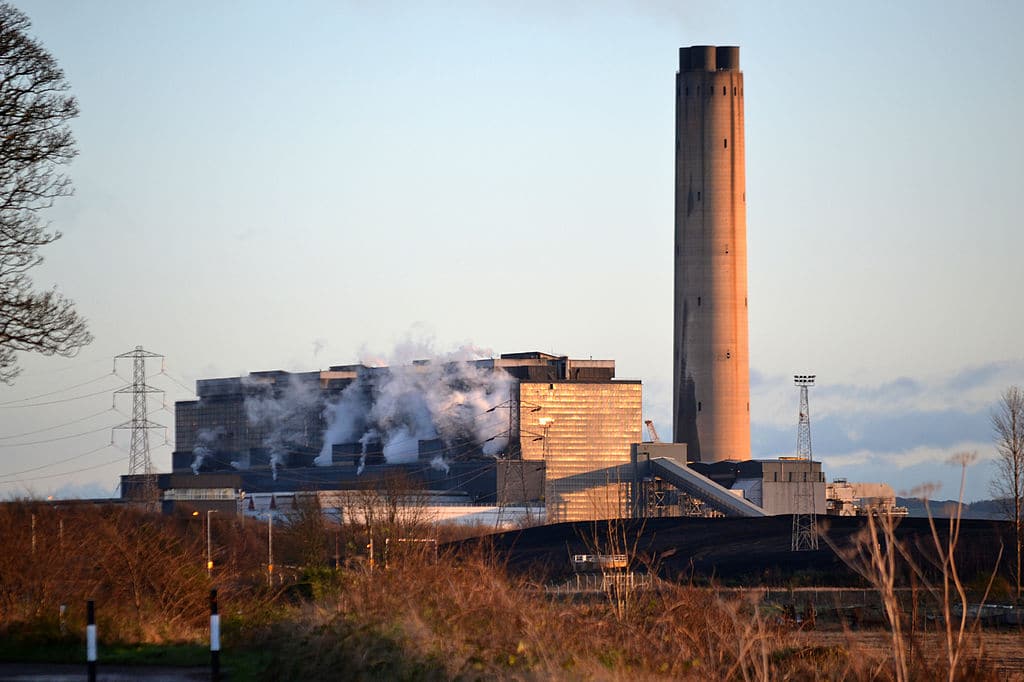Scottish First Minister Nicola Sturgeon pushed the button on a controlled explosion at the last remaining coal fired power plant to symbolise the end of coal in Scotland.
—
Scotland has marked the “definite end of coal power” in the country by demolishing a 600-foot-tall chimney at its last remaining coal plant at Longannet in Fife.
Scottish First Minister Nicola Sturgeon pushed the button on the controlled explosion on December 9, in a move symbolising the nation’s transition away from fossil fuels and towards the goal of achieving carbon neutrality by 2045.
The Longannet power plant first opened in 1973 and was once the largest coal power station in Europe, where it consumed around 4.5 million metric tonnes of coal each year. ScottishPower eventually closed the Longannet site in 2016, and Scotland, which had just hosted the COP26 climate summit in November, had been coal-free since. The demolishing event was a “symbolic reminder” of the end of the coal era for the country.
“Our goal is to generate 50% of overall energy consumption from renewable sources by 2030, and Scotland’s energy sector is well placed to deliver on the key investments in renewables, hydrogen and energy storage required to achieve this,” said Sturgeon.
“Growth in these sectors over the next decade will be transformative for Scotland, delivering further good, green jobs, strengthened energy security, and benefits for local communities as we decarbonise industry and society to mitigate the worst effects of climate change, in a way that leaves no-one behind,” she added.
Since closing its last coal fired power plant, ScottishPower now generates 100% renewable energy from wind and solar. A fact that Keith Anderson, chief executive of ScottishPower, was “proud to show” at COP26.
“We bade farewell to that landmark today – however this is a landmark day for Scotland too,” said Anderson. “Watching the chimney of Scotland’s last coal fired plant fall today represents a real milestone, as the UK moves away from the large polluting power stations of the past and accelerates down the road to net-zero emissions.”
While Scotland has no remaining coal fired power stations, there are still a number of active power plants in the UK, including West Burton A in Lincolnshire, at Ratcliffe-on-Soar in Nottinghamshire, and at Kilroot in Northern Ireland. But these will be eventually phased out after COP26 saw nearly 200 countries and nations agreeing to “phase down” coal in order to keep global warming 1.5 above pre-industrial levels. The UK has also announced it will eliminate coal for electricity generation from October 1 2024 onwards, a year earlier than planned.


















